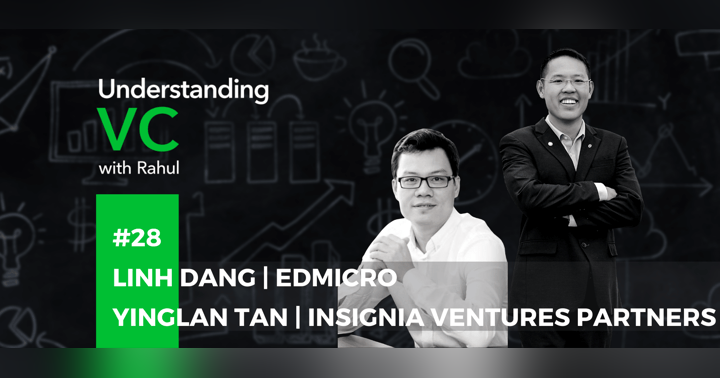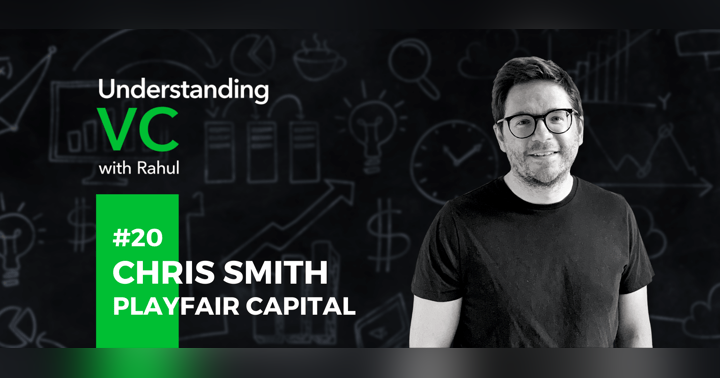Understanding VC: #19 Aldi Adrian Hartanto from Arise, MDI Ventures on his “language of business”, why being a genius is not a prerequisite for success, and Arise’s unique model of due diligence which goes beyond a simple pitch or product idea

In our latest episode of Understanding VC, we talked to Aldi Adrian Hartanto, Partner at Arise, an early-stage VC fund in partnership with Telkom Indonesia-backed MDI Ventures and Bank BCA-backed Finch Capital. During the beginning of our conversation, Aldi repeatedly emphasizes that he never considered himself a genius but an average guy with particular interest in finance. Although we found it hard to believe, his story explained the thought behind his words. At the young age of 28, Aldi has achieved several feats such as becoming the only person from the SEA region to be included in the GCV Powerlist Top 100 (2020).
Achieving great things comes at a great price for the majority of people. And Aldi had anything but a smooth start. He tells us that his father was a failed entrepreneur, primarily because he did not have any knowledge of finance, which led him into getting swindled and falling into debt traps. Aldi’s heritage consisted mainly of those debts and a sharp realization about the importance of financial education. He resolved to learn from his father’s mistakes and build a better future for himself and the family whose responsibility had fallen upon his young shoulders.
Aldi operates on a belief system governed by the principle that one can overcome the limitations of intellect by putting in extra work. Alongside his studies, Aldi started off as a financial administrator at SMEs and in the second year of his college, met his mentor Togi Sirait. Togi provided an input which further strengthened Aldi’s working principle: time is the most valuable asset one can invest, which bears surprising value when invested in the right place.
Follow your talent.
The period between 2011 and 2013 was a time of immense growth for Aldi. He learnt about venture capital, got the chance to work with Japanese LPs, and gave up his job for a low-paying internship which intrigued him more than anything else had. His interest in finance also bloomed around this time, owing to the lessons learnt from his father, and a personal discovery. Aldi’s rendition of the “follow your passion” proverb gives precedence to talent and that was the key to his success. And by talent, he does not refer to some incredible ability which only a few humans possess in every age, but whatever you are naturally good at. Aldi realized where his talent lay when he consistently scored well in school in only one subject, economics. From economics, his mind wandered off to finance which today he claims to be “the language of business”.
Needless to mention, you need to be thorough with the language of a region you want to explore and perhaps even settle in. That’s exactly what Aldi did. His time spent with Japanese LPs was crucial in his familiarization with business and venture capital. According to him, the Japanese have set a benchmark in business relations which is hardly paralleled by any other asian country. The value they give to relationships built on the foundation of gradually earned trust makes them not only prudent entrepreneurs and investors but also reflects their spotless work ethic.
Wading through such a variety of experiences, Aldi finally obtained the opportunity to set up his own fund, Arise, which according to him is the ultimate goal for a fund manager like himself. Arise was established in partnership with MDI Ventures and Finch Capital, partnerships that lent Aldi the autonomy to make his own decisions while having the capital leverage of the partners.
Digging deeper into his observations about VCs and their functioning, we asked Aldi about his thoughts on the rate of evolution that VCs illustrate in relation to the rapidly developing startup ecosystems. In Aldi’s opinion, VCs continue to operate on a rigid structure which has not undergone much change with time while the startup ecosystem has had a complete overhaul over the last decade or so, not just in terms of functioning, but also in terms of the kind of innovative products that entrepreneurs are offering to the market.
This observation has allowed Aldi to take preemptive steps in order to keep up with the times his fund is operating in. Rigorous research is the key component of Aldi’s VC model. Aldi foresees that seed-funding is going to boom in the coming years, and he is ready for the opportune moment with tools which he has excavated with sheer hard work and a dedicated study of the market.
As most the readers might be aware, most of the seed-stage funds rely on the “spray and pray” method which entails a dispersed investment in startups with hopes that a single one of them becomes so successful as to win them an overall profit on their entire investment, or at least get their money back. But for someone like Aldi who is extremely meticulous with the decisions he makes, this is like shooting in the dark with nothing to aim at in the first place. He also feels that he would be abandoning his responsibility to the LPs if he were to adopt this method.
Aldi’s research has led to the development of a data-driven decision making process which he calls “venture indexing”, a new age version of venture investing. He analyzes how other seed-funds are doing in the market, and attempts to figure out categories instead of single startups that are worth investing in, by studying their growth rates in various markets. Moving past the age-old concept of “investing in founders”, Aldi has embraced a method primarily based on market analysis and precisely aimed investments. Taking inspiration from Warren Buffet, Aldi is aiming to develop a portfolio which would be managed like private equity.
As it is already clear, Aldi lays most of the groundwork before even meeting the founders which leads to a speedy seed round. But in addition to this, he also invites the professionals and founders to invest small amounts so that they have skin in the game, and hence a more pronounced sense of responsibility.
We ventured to enquire, how exactly does this rigorous process allow Arise to benefit the entrepreneurs who are trying to raise funds with them. Owing to his finance background, and as corroborated by his venture indexing method, Aldi has always been a numbers guy. And so, the ability to juggle numbers with unparalleled ease is something Aldi offers to his portfolio founders.
Aldi says, in 2021, more and more venture capitalists are cropping up with a strong and sophisticated understanding of finance. Arise aids its founders to develop a full proof budget which enables a smoother communication process with these VCs in subsequent funding stages, in addition to a much better alignment of goals.
Coming across this fresh approach, we were curious to know the details of Arise’s interaction with founders, what their pitching sessions look like and the workplace dynamic that prevails under Aldi’s guidance. To our surprise, Aldi also pays considerable attention to the background of the founders, although without completely relying on them to make his decision. For Aldi, a perfect pair of founders consists of one who is well-versed with the local market and has experience building a product which lies in the category they are presently operating in. The other founder should ideally have a tech background who would translate the market demand into a digital product in order to optimize scaling.
As far as pitching is concerned, Arise alleviates most of the pressure off of the founders because their pitching sessions are more like group discussions and less like interviews. One thing Aldi looks for during those sessions is how proactive and well-researched the founders are which reflects the amount of effort they are willing to put into what they intend to build.
Moving on, we asked Aldi about his opinion on corporate VCs in order to gain some insight for emerging entrepreneurs to make wiser choices. As it turns out, corporate VCs, at least according to Aldi who has worked with one, are not the devils they are made out to be. They only differ from typical VCs in terms of goal-alignment and strategy. And whether a startup should engage with a corporate VC boils down to whether its goals align with that of the VC, a question which remains consistent while raising funds with any type of VC. The correct answer to this question can only be obtained through scrupulous due diligence.
To conclude the conversation, we asked Aldi to share his vision of the Indonesian market in the near future. He’s heard people say that the tipping point for the Indonesian startup ecosystem was in 2014 when for the first time, innovation startups could cross the hundred million dollar mark. But as Aldi sees it, it is much more probable that Indonesia is currently witnessing the real tipping point in 2021 with an abundant inflow of global funds, increasing interest in unicorn companies, and an overall well-rounded ecosystem.
Indonesia certainly has some challenges to be faced. One of which includes diffusion of the market which is currently concentrated in Jakarta. Once that is done, the country will be able to unlock more of its potential and businesses would be able to add value to an exponentially increased number of lives.



